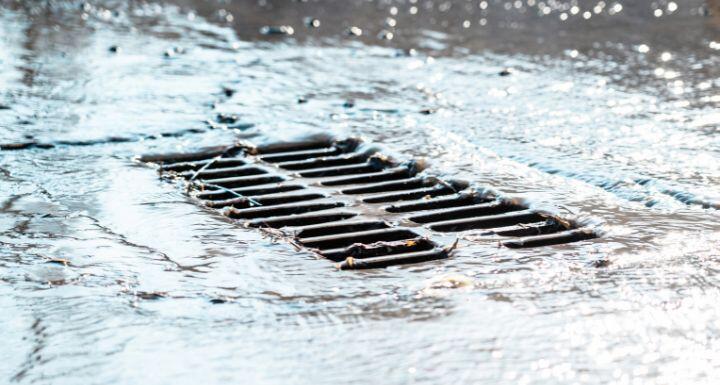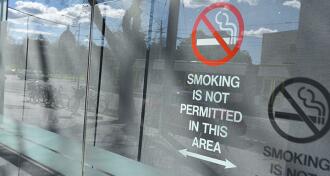Developers in North Carolina must obtain numerous permits from various governmental agencies before constructing a planned community or developing condominiums.
Most construction permits end by their terms upon completion of construction of the project, but one permit, the State Stormwater Permit ("Permit"), continues into the future and will become the responsibility of the community owners association ("Association").
The North Carolina Post-Construction Stormwater Permit
The North Carolina Department of Environmental Quality Division of Energy, Mineral and Land Resources ("DEMLR") requires the developer of projects such as planned communities and condominiums to obtain and comply with the provisions of the Permit for the purpose of protecting surface waters and aquatic resources from the adverse impact of stormwater runoff from constructed impervious surfaces. The provisions of the Permit may vary, but typically require the developer to:
- Construct ponds and swales, install culverts, and make other improvements (collectively, "Stormwater Facilities") under the Permit; and,
- Operate, maintain, and repair the Stormwater Facilities to ensure continued compliance with the Permit. (Note: Neither the Permit nor the Stormwater Facilities are designed or intended to control flooding within communities.)
Under the terms of most Permits, the Stormwater Facilities are constructed on common area or on property subject to an easement in favor of the developer and the State for purposes of ensuring stormwater conveyance and treatment continues in the manner contemplated by the Permit and the plans submitted by the developer.
Transfer of the Permit to the Association
At some point, the developer will complete the development of the community and convey common area to the Association. The transfer of real property to the Association is not enough to relieve the developer of responsibilities under the Permit. To do so, the developer will need to transfer the Permit to shift the responsibilities and liabilities for operating, maintaining, and repairing the Stormwater Facilities to the Association. The transfer process is governed by North Carolina General Statute, primarily Sections 143‑214.7(c2) and (c5). The developer does not need the Association to agree to accept the transfer of the Permit so long as the following provisions are met:
- The common areas within the community where the Stormwater Facilities are constructed have been conveyed to the Association;
- The developer must have conveyed at least 50% of the units or lots in the community to other owners; and,
- The Stormwater Facilities must be in substantial compliance with the Permit at the time the developer applies to transfer the Permit.
If all of these requirements are met, the DEMLR will approve the transfer of the Permit and the accompanying obligations to the Association.
Following conveyance of the Stormwater Facilities and transfer of the Permit, the Association will be responsible for, and bear the cost of, the repair, maintenance, and replacement of the Stormwater Facilities. It is important that, when the Permit is transferred, the Stormwater Facilities are in good working order and condition and in compliance with the Permit.
Changes to the stormwater statutes that became effective in September 2021 address the increasingly common scenario where a developer has conveyed the common area on which the Stormwater Facilities are located to the Association, but has not also transferred the Permit. Often the Association maintains the Stormwater Facilities for years under the terms of its governing documents without realizing it is not the permittee. The statutory amendments allow DEMLR to compel the transfer of a Permit without the consent of the permittee developer or Association in certain circumstances.
DEMLR will require the developer, as the permittee, and the Association, as the successor owner of the property or common area, to submit an application together. If the conditions on the property do not conform to the approved plans and permit conditions, determined by DEMLR through a site inspection, then DEMLR will require an action plan with a schedule for achieving compliance within one calendar year, which also may necessitate modification of the Permit.
If the permittee has sold the property, or if the permittee is the declarant of a condominium or a planned community and the successor-owner is an Association, then only the permittee is responsible for the action plan and compliance schedule and for bringing the property into substantial compliance with the approved plans and permit conditions before DEMLR can transfer the permit. This can relieve the Association of the obligation to perform this work.
Stormwater Facilities and Developer Problems
Over time, Stormwater Facilities will deteriorate. Ponds fill with sediment, swales become overgrown with vegetation, culverts burst causing sinkholes and collapsed roads, and other Stormwater Facilities fail in ways causing damage to community property. In addition, DEMLR may levy significant fines if the Stormwater Facilities are not repaired in response to a Notice of Violation. Fines are assessed against the current holder of the Permit—which could be the Association or the developer if the Permit was never transferred.
A significant problem for the Association is whether the original developer and holder of the Permit are no longer operating. When DEMLR seeks to enforce the provisions of the Permit and require compliance, the Association may be exposed to some liability if the original developer is no longer in existence, is bankrupt, has no assets, or cannot be located, and the Association has, or should have been, maintaining the Stormwater Facilities under the terms of the governing documents which often are required by the Permit.
Claims for Responsibility
When problems with the Stormwater Facilities arise, the developer may attempt to transfer the Permit to the Association or assert that the Association is the party responsible for making the repairs based on the terms of the community's governing documents, sometimes referred to as the "declaration." The Association may claim that the developer should repair the Stormwater Facilities.
Which is the responsible party? The answer is not always clear and depends on specific circumstances, but the issues that arise and the arguments made by both parties are usually the same.
As mentioned above, the transfer of a Permit may only be accomplished pursuant to the terms of North Carolina General Statute Sections 143‑214.7(c2) and (c5). In an older community, it is likely that the developer has conveyed over 50% of the lots or units, and it is also likely that the developer has conveyed the common area to the Association. The third requirement, that the Stormwater Facilities be in substantial compliance with the Permit, based on an inspection by DEMLR, is the requirement the developer and Association most often dispute.
Since DEMLR will not approve a transfer of the Permit if the Stormwater Facilities are in disrepair, the developer may attempt to rely on the provisions of the community's governing documents regarding the maintenance of common areas. A declaration usually provides that the Association is responsible for maintaining the common areas in the community, which should include the Stormwater Facilities.
Sometimes the terms of a declaration specifically will place the burden of maintaining Stormwater Facilities on the Association regardless of whether the developer retains the Permit. Such provisions provide the basis of an argument by the developer that the Association bears some responsibility for the maintenance of Stormwater Facilities, but does not necessarily relieve the developer of its obligations under the Permit. The Association ultimately may be responsible for maintaining the Stormwater Facilities, but DEMLR will enforce the terms of the Permit against the developer until DEMLR approves the transfer to the Association.
Association Planning for Transfer of the Permit
Although the recent changes to the stormwater statute may place the burden of bringing the Stormwater Facilities into compliance with the Permit and approved plans on the developer, the Association must anticipate the transfer of the Permit and be prepared for the responsibilities to maintain, repair, improve, and replace the Stormwater Facilities as a cost which must be included in each of the Association's annual budget. An experienced developer usually tries to transfer the Permit to the Association earlier rather than later; however, more often than not, it is only addressed at the time of the transition of control of the community from the developer to the Association or not until the Association asks DEMLR to compel a compliance inspection in anticipation of a transfer. The Association has an economic interest in monitoring the status of the developer as it relates to the Permit to ensure that any problems relating to the Stormwater Facilities are addressed (whether or not the Permit is transferred) while the developer is still active in the community and has the money to pay for the oftentimes expensive repairs or replacement.
Summary
An Association's burden for the maintenance and repair of Stormwater Facilities can be a significant amount of money. However, that burden can be minimized if the developer constructs the Stormwater Facilities pursuant to the Permit and the Association ensures it is informed of the Permit transfer process and is aware of its rights and obligations regarding Stormwater Facilities so that the Association can avoid unnecessary expenses while also accumulating reserve funds for those obligations it cannot avoid.








